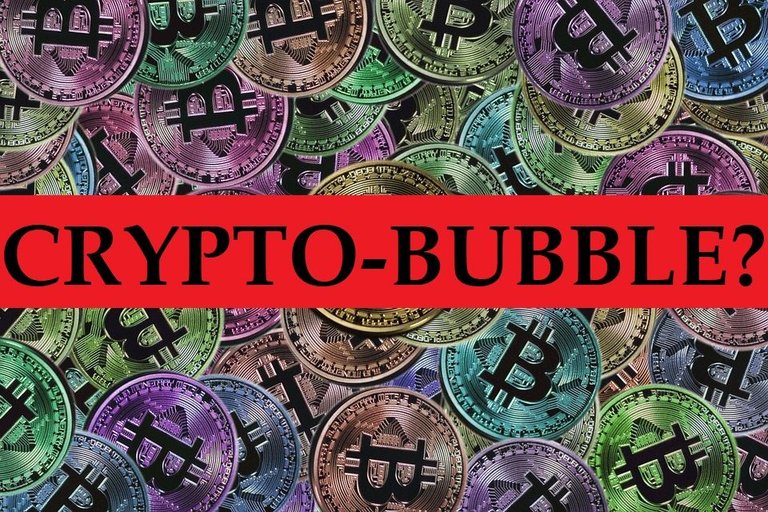
The boom in cryptocurrency in recent times has sent waves of hype and promise over a potential to disrupt how we currently perceive conventional currency. With the capability to circumvent the established money system designed by central banks, more and more people are looking towards cryptocurrency and blockchain technology as a replacement or alternative for debt-based monetary fiat, or at least, a formidable proponent. Such beliefs have driven much of the volatility that we see in current crypto-markets today, leading to wild price swings in short amounts of time. Bitcoin, widely regarded as the “Father of Cryptocurrency”, has seen a 480% rise in value in 2017 alone, currently priced at an all-time high of $5800 as of 15th October 2017 [1][2]. Ethereum, currently the cryptocurrency with the second largest market cap, has also faced tremendous growths, surging a whopping 5000% since the start of 2017 [1]. Other forms of cryptocurrency, known as ‘altcoins’ has even seen growths of up to 2000% in 24 hours [2]. These volatile swings in prices has led many to view cryptocurrency as a promise land to instant riches, giving birth to new ‘investors’ every day.
However, with such booming growths, many economists argue that an impending economic bubble is lurking in the crypto-space. Howard Marks, Billionaire and founder of Oaktree Capital Management, warned that cryptocurrencies are currently overvalued. He also commented that cryptocurrencies are nothing more than a ‘fad’, stressing that these digital currencies are ‘not real’. In spite of this, former COO of PayPal and investor of many successful tech start-ups David Sacks, views cryptocurrency as the next big thing in technology. Whether fad or revolutionary, history has dictated that the threat of an impending bubble must be taken seriously. This paper aims to discuss if cryptocurrencies are poised to be our next economic bubble and the implications from assuming so.
Before dissecting the topic at hand, we must first understand the fundamentals that make an economic bubble. NASDAQ [3] defines an economic bubble as “a market phenomenon characterized by surges in asset prices to levels significantly above the fundamental value of that asset’. These overinflated prices are for the most part caused by speculation regarding the underlying value of an asset. Prices are often driven to huge gains due to this, leading to a phenomenon known as ‘fear of missing out’ or ‘FOMO’, attracting increasing amounts of buyers. As more buyers drive prices higher in hopes of selling at even higher prices for profit, it reaches a point where prices are no longer sustainable. This causes panic leading prices to a price crash as investors race to save as much of their capital as they can. Problems arise even further if a market segment becomes too popular, attracting many inexperienced investors, usually made up of the ‘everyday men’. Inexperienced investors, although not exclusive to them, would often hold in times of a crash with hopes that market prices would drive back up as they always have during periods of huge gains. But as the crash continues, massive panic ensues, and these investors make up the bulk of selling volume that intensifies a crash’s severity.
The stock market crash of 1929 was no stranger to the above. John Rothchild [4] tells the story of Joe Kennedy, a wealthy man who promptly exited the stock market scene after a shoeshine boy gave him tips on the next big stock. Joe had thought that the stock market is too popular for its own good and predicted a big crash, which was also theorized by Bernard Baruch, a popular investor at the time. Bernard Baruch recounts the large number common workers were holding portfolios of several blue-chip stocks and held tips on the ‘next big gain’, to the point where it became a public norm. This rampant speculation subsequently led to the 1929 crash, signalling the start of the great depression.
References:
- Kharpal, A. (2017). Ethereum hits another record high after bitcoin and is up over 5,000% since the start of the year. [online] CNBC. Available at: https://www.cnbc.com/2017/06/12/ethereum-price-hits-record-high-after-bitcoin.html [Accessed 13 Oct. 2017].
- Coinmarketcap.com. (2017). Cryptocurrency Market Capitalizations | CoinMarketCap. [online] Available at: https://coinmarketcap.com [Accessed 13 Oct. 2017].
- NASDAQ.com. Definition of "Economic bubble " - NASDAQ Financial Glossary. [online] Available at: http://www.nasdaq.com/investing/glossary/e/economic-bubble [Accessed 13 Oct. 2017].
- Rothchlid, J. (1996). WHEN THE SHOESHINE BOYS TALK STOCKS IT WAS A GREAT SELL SIGNAL IN 1929. SO WHAT ARE THE SHOESHINE BOYS TALKING ABOUT NOW? - April 15, 1996. [online] Archive.fortune.com. Available at: http://archive.fortune.com/magazines/fortune/fortune_archive/1996/04/15/211503/index.htm [Accessed 13 Oct. 2017].
END OF PART 1

Resteem and upvote if you like this!
Want anything researched? Let Dr.Heghog do it for you! Read here!